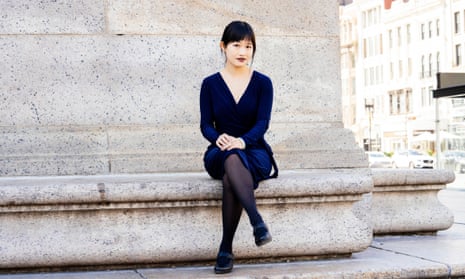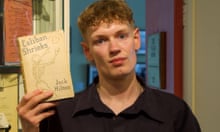Leaked emails from the organisers of the prestigious Hugo awards for science fiction and fantasy suggest several authors were excluded from shortlists last year after they were flagged for comments or works that could be viewed as sensitive in China.
In January the Hugo awards published the statistics behind the 2023 awards, which were held as part of the World Science Fiction Convention (Worldcon) in the Chinese city of Chengdu in October. The data showed that the New York Times bestseller RF Kuang and the young adult author Xiran Jay Zhao were among authors who had received enough nominations to be on the ballot in their respective categories but were deemed “not eligible” by the award’s administrators, without further explanation.
The news sparked consternation in the science fiction community, with many fans and authors expressing concern that the awards had been tainted by censorship. Now emails leaked from the 2023 awards committee appear to have confirmed those fears, with a member of the 2024 Worldcon committee resigning as a result.
In an email on 5 June 2023, Dave McCarty, the head of the 2023 Hugo awards jury, wrote: “We need to highlight anything of a sensitive political nature in the work. It’s not necessary to read everything, but if the work focuses on China, Taiwan, Tibet, or other topics that may be an issue *in* China … that needs to be highlighted so that we can determine if it is safe to put it on the ballot or if the law will require us to make an administrative decision about it.”
McCarty did not respond to the Guardian’s request for comment.
The emails were leaked by another member of the 2023 Hugo administration team, Diane Lacey, to Chris M Barkley and Jason Sanford, science fiction writers who are also journalists. Barkley and Sanford published a report about the controversy on Wednesday.
In a statement to Barkley and Sanford, Lacey said: “We were told to vet nominees for work focusing on China, Taiwan, Tibet, or other topics that may be an issue in China and, to my shame, I did so.”
In the emails, Lacey had flagged one of Zhao’s books as being “a reimagining of the rise of the Chinese empress Wu Zetian”, adding: “I don’t know if that would be a negative in China.”
Zhao said: “I cannot believe the western members of the admin team chose to willingly participate in this instead of upholding the integrity of the awards.”
Another of the writers affected was Paul Weimer, who was excluded from the fan writer category. One of the several points raised about him in the emails is that he had previously travelled to Tibet. But Weimer said he had only been to Nepal, not Tibet. “It’s not even competent political censorship – it’s haphazard bullshit,” he said.
The chair of the organising committee of the 2024 Worldcon, which will be held in Glasgow in August, said in a statement that Kat Jones, who had researched Weimer, had resigned from the committee.
after newsletter promotion
“I acknowledge the deep grief and anger of the community and I share this distress,” Esther MacCallum-Stewart said. She said the committee would be taking steps “to ensure transparency and to attempt to redress the grievous loss of trust in the administration of the awards”.
The incident prompted discussion among the science fiction community in China. One commenter on Weibo wrote: “Diane Lacey’s courage to disclose the truth makes people feel that there is still hope in the world, and not everyone is so shameless … I can understand the concerns of the Hugo award staff, but ‘I honestly think that the Hugo committee are cowards.’”
The Hugo awards are the premier accolade for science fiction and fantasy. They are administered by the World Science Fiction Society, a loose collective of fans who vote for their favourite works or authors across more than a dozen categories before the annual conference, Worldcon, which is held in a different city each year. Last year’s event was the first time it had been held in China.










